
Don’t throw your Christmas tree in your general waste bin – no matter if it’s real or artificial – there are a number of ways to recycle it in Greater Manchester. Read on to make sure you know how to recycle your tree.
Before recycling your Christmas tree please:
Depending on where you live, you might be able to recycle your real tree at home – check your local council’s service and advice.
You can put some real Christmas trees in your food and garden bin at home. If you’re going to recycle your tree this way, make sure you cut it up first. The other thing to remember is that your tree trunk can’t be any thicker than your wrist. You can take large trunks and wooden bases to your local recycling centres.
Looking for local drop off points? You can take your Christmas tree to any of the 20 recycling centres in Greater Manchester for free. Just make sure you transport your tree safely. If you’re planning on using a van, pick-up truck or a twin-axle trailer to dispose of your tree, you need to apply for a permit.
JustHelping will collect the tree from your home and recycle it to raise money for hospices and charities.
Collections are available in Bury, Manchester, Tameside, Stockport, Salford, and Trafford.
Register your tree for collection.
Thinking of reusing your artificial tree next year? That’s great! You just need to remove any decorations and fairy lights and store it well back into the box.
If you don’t need your tree anymore, you can bring it to your local recycling centre as long as it doesn’t have any lights attached. If it’s in good condition, place it in the donation container to help stock our Renew shops where preloved household items are sold at an affordable price. You can also look for other donation points such as your local charity shops.

Renew stocks a wide range of good quality, preloved items for your family, home and garden, with new stock arriving every day. All of the items we sell have been donated by Greater Manchester residents at our recycling centres, and the money raised goes to good causes across the city-region through our Community Fund and the Greater Manchester Mayor’s Charity.
Many of the items in our shops are barely used, and some are even brand new. We also have a range of vintage and unique upcycled items on our eBay store.
…And much more!
If you are replacing your mattress, you can take your old mattress to a recycling centre.
Mattresses are delivered to The Furniture Recycling Group in Bolton, where they are dismantled, ready to be recycled into something new.
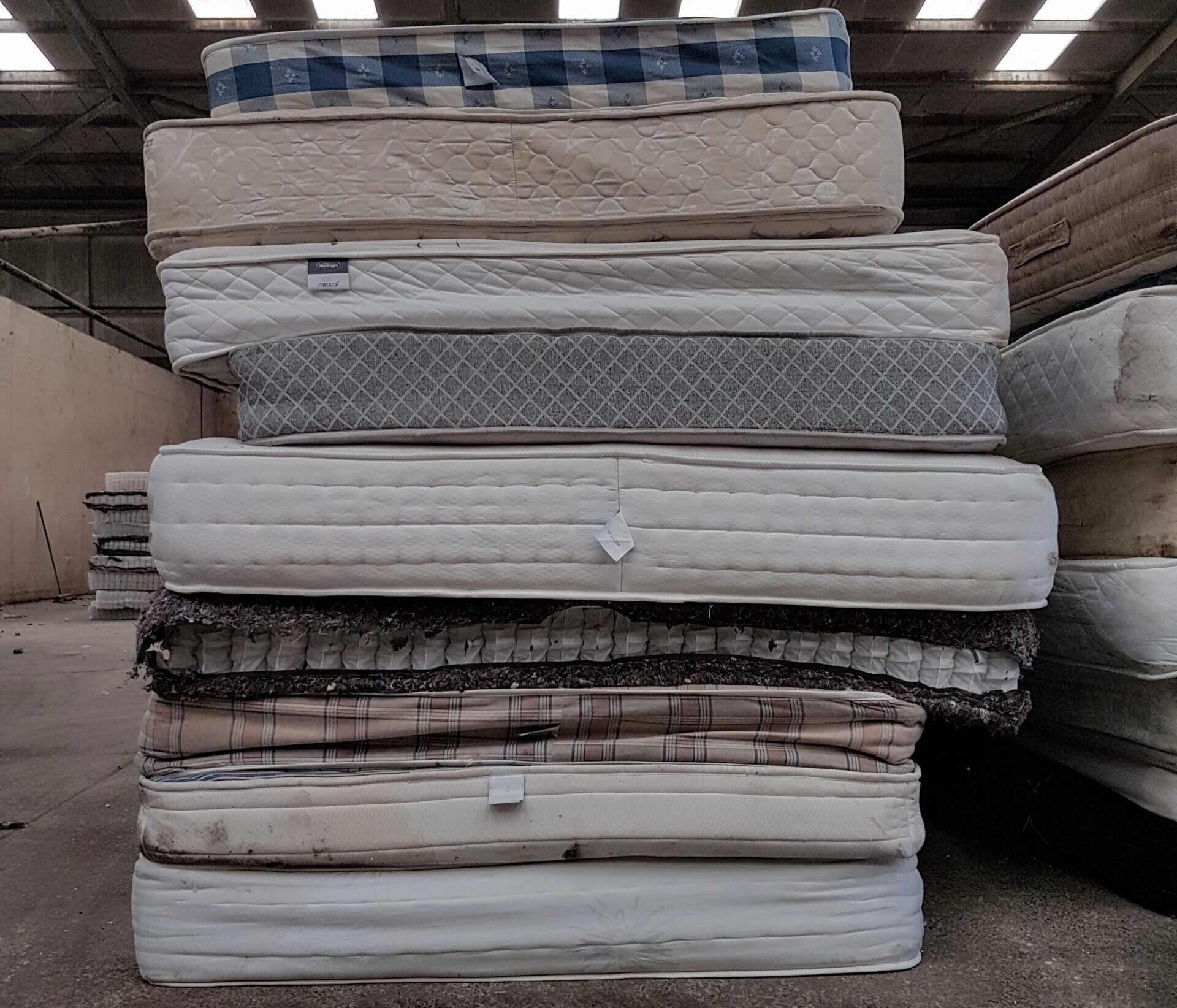
1. Mattresses are collected from our recycling centres in Greater Manchester.
2. The mattresses are then delivered to the recycling facility.
3. Mattresses are dismantled by hand into 19 component parts.
This includes:
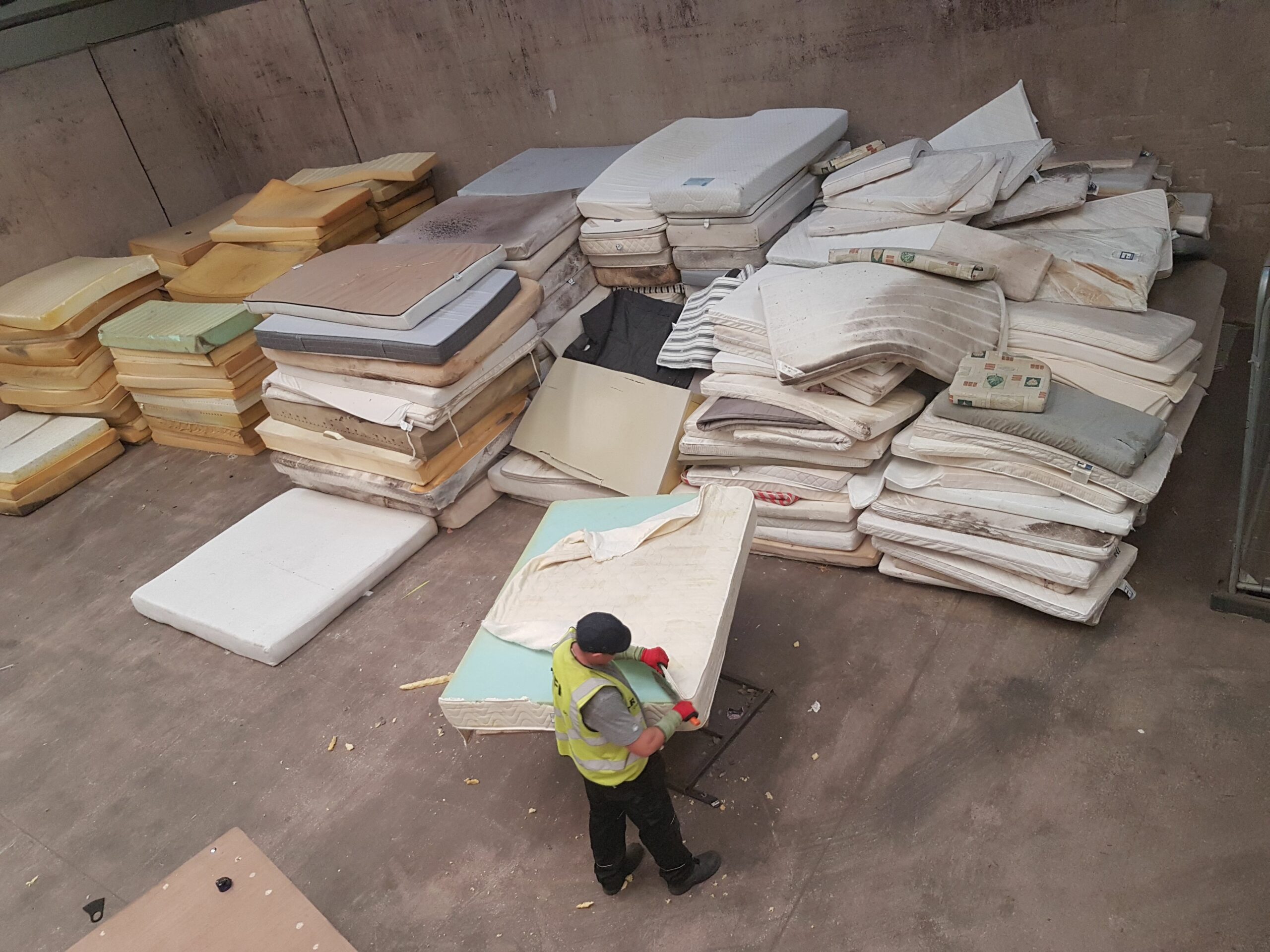
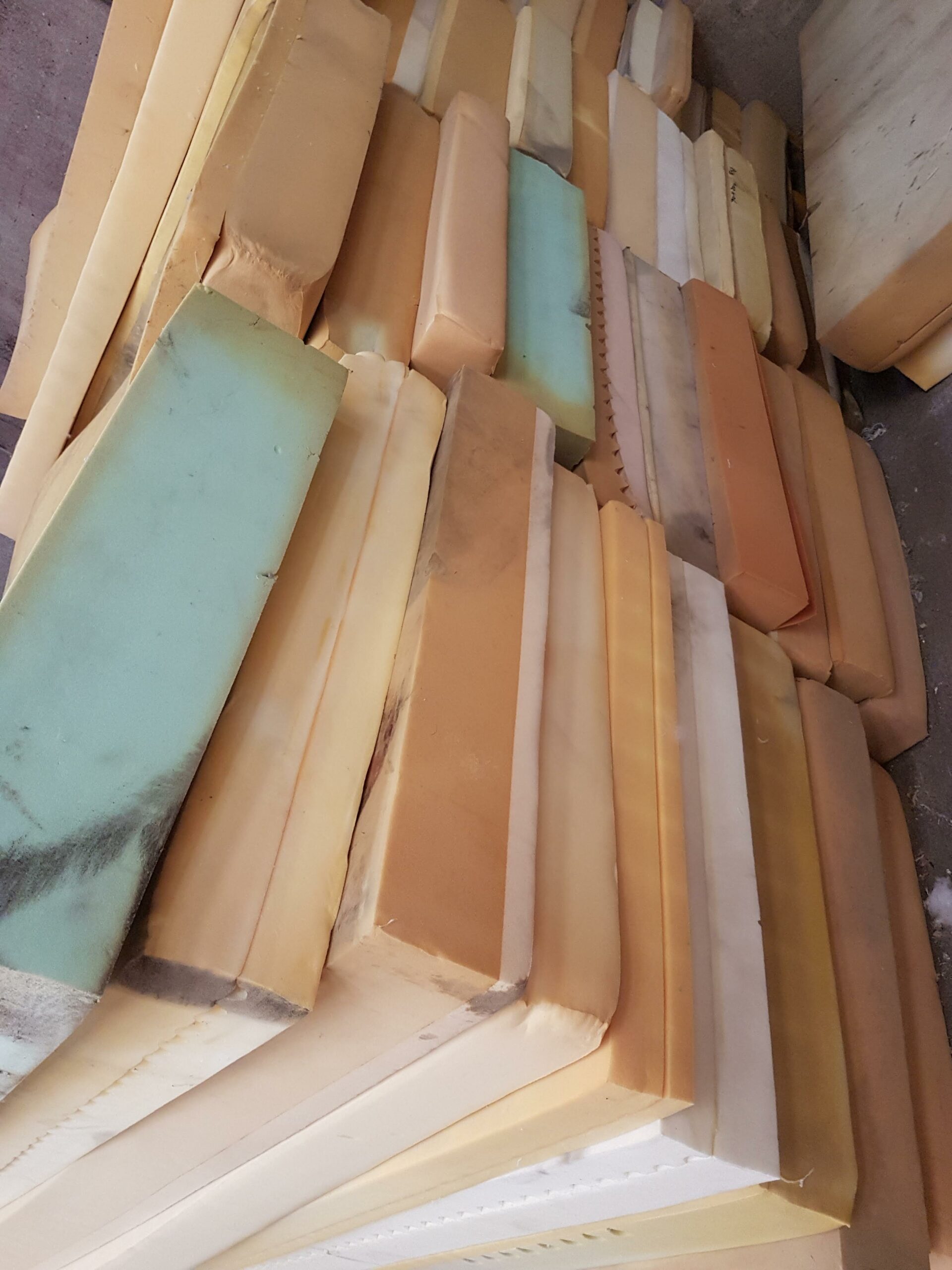
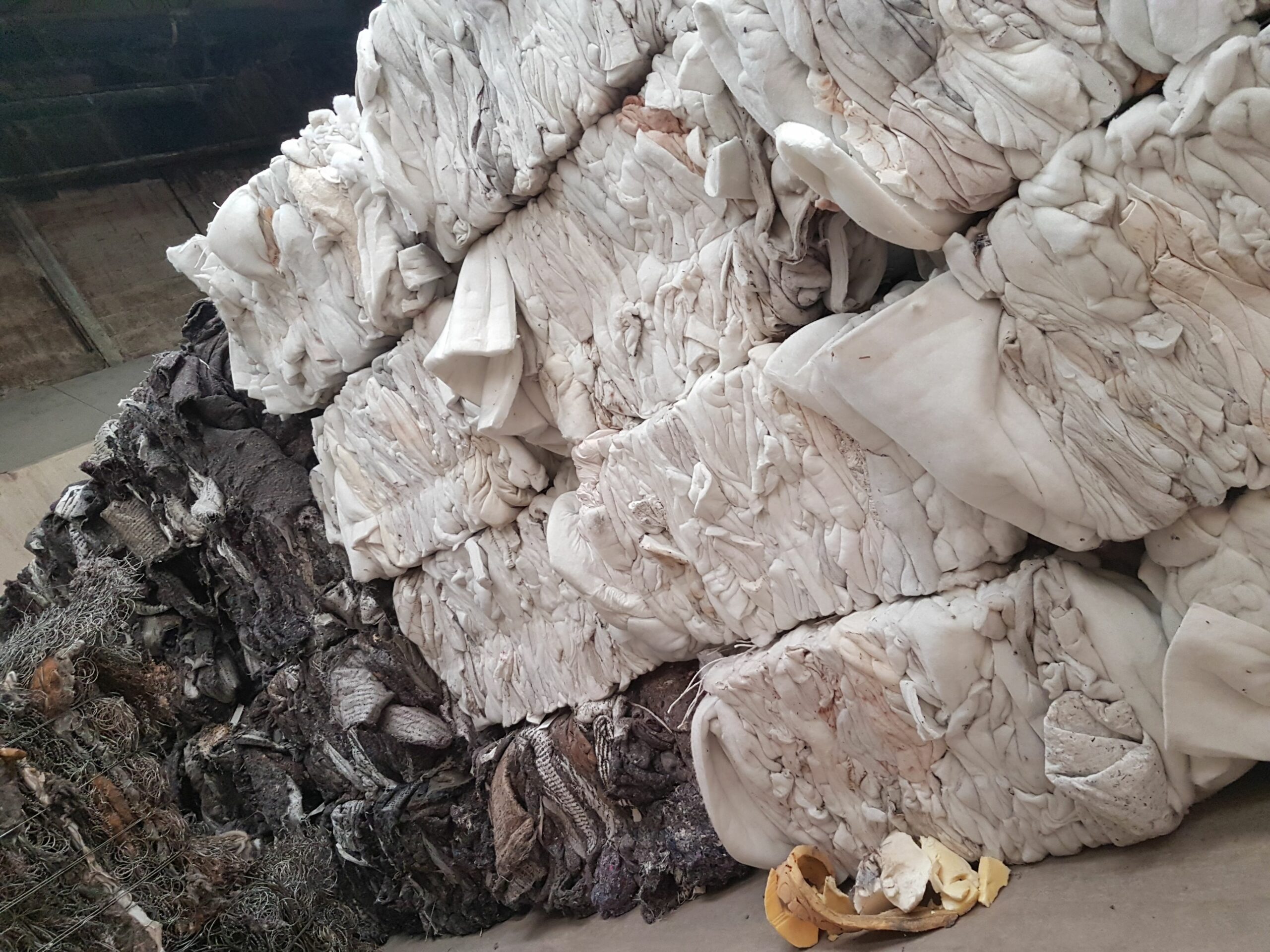
4. The separated materials are then cleaned ready for processing
5. The materials are made into new products such as:
Did you know you could put yourself, our bin crews and recycling centre staff in danger if you dispose of batteries in any of your bins at home? Read on to find out how to dispose of and recycle batteries safely.
Old batteries may seem ‘dead’ but they can cause fires in your home, bin lorries and recycling centres when they are punctured or crushed. They also contain hazardous materials which may endanger our operational staff if not disposed of correctly.
When recycling batteries, follow these simple steps to keep your home and our staff safe:
There are hidden batteries in many electrical items such as electric toothbrushes, toys, e-cigarettes, vapes, phones, laptops, and many more. You can recycle them by following the same steps above.
If you are unsure how to recycle an item, have a look at our A-Z item guide to help you recycle as much as you can and to dispose of your waste safely.
When next replacing batteries, why not buy rechargeable batteries instead? You can use them again and again, which will save you money and help you waste less.
If you’d like to find a new home for your electrical items, you could bring them to your local recycling centre (except for Chester Road and Reliance Street) and place them at the donation container which will then be brought to our Renew Hub.
Home composting is using your kitchen waste and garden waste to make your own nutrient rich compost that you can use to help feed your flowers, plants and vegetables.
Home composting is a year round activity that won’t take up all of your time. To help you on your composting journey we have teamed up with Sow the City community group to provide our composting new starters and veterans some hints, tips, and expert information.
We’re really excited to be working with Sow the City. They’ve been doing community based environmental activities and learning across Greater Manchester for over 10 years. They’re also a wonderful bunch of people, passionate about composting and always eager to help people get started. So, if you’ve got composting questions or if you’re not sure you have enough space to compost, get ready to ask our experts.
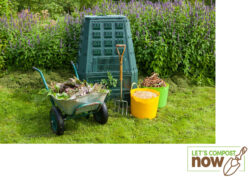
To kickstart your composting journey or expand what you’re already doing at home we’re working with Get Composting to provide residents in Bolton, Bury, Manchester, Oldham, Rochdale, Salford, Stockport, Tameside and Trafford the opportunity to get a discounted price on the most popular compost and Bokashi bins. Our offer also includes free postage and packaging. Just put in your postcode and you’ll see all eligible discounts.

Did you know you can make leaf mould? All you need is a big plastic bag and some leaves.
Or if you grow vegetables, you can chop up the leaves and spread them over your garden, it will rot down over the winter and you just dig it in before planting next year.
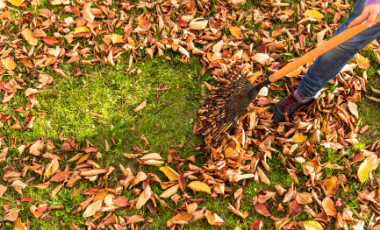
By composting your garden and kitchen waste you are reducing the amount of waste going in your food and garden waste recycling bin. Composting at home provides a home for a range of mini-beasts and worms that turn your food and garden waste into compost.
Most composting systems should be in shade and away from the sun. Ground-based compost piles and bins should be placed on bare soil so that bugs and worms can get into your bin. A wormery can be placed in a shed to protect it from extreme weather conditions. Bokashi containers can be kept in the kitchen.
Visit the Compost Instructions website for a list of what you can and can’t add to your compost bin.
Yes, especially in rainy Greater Manchester! A cover stops it becoming waterlogged in winter and keeps moisture in during the summer. You can cover open compost piles with things like plastic, old carpet or plywood.
To begin with, the progress may seem slow but once you get going you will have a supply of compost all year round. This does depend on how you manage your compost and the type of composting system you use. Compost turned regularly can take between 6 months and 2 years to be ready. Composting is not a sprint it’s a marathon!
Compost doesn’t take much maintenance time at all! The only difference is that you are putting some of your food waste in your compost bin instead of your wheelie recycling bin. You just need to turn the compost once a week.
You don’t need garden or a lot of space to start composting. There are lot of different sizes and types of bins and containers – you can even make your very own!
There are two reasons why mice and rats may be attracted to compost. One is for food and the other is warmth. To stop this from happening, bury food waste in the compost and remember don’t put meat, fish, bones or dairy products in your compost. Place the bin on a surface rats and mice can’t burrow under, like thick wire mesh. Also turn or mix up the compost regularly, this will discourage any nesting.
A well-managed compost should not smell or be slimy, but if it does there a few of reasons why this may be happening:
Make sure your compost is covered, turn the compost and add some drier ’brown’ materials such as leaves, hedge cuttings or shredded plain paper or card and give it a good mix. Only put raw vegetable and fruit kitchen waste in your compost or consider a composting system specially designed to take all food waste such as a Bokashi bin.
Add more green waste such as veg peelings, grass cuttings.
It’s a fact that flies are attracted to rotting food. However, there are simple ways to avoid your compost attracting flies. Make sure you mix and bury your food waste within your compost. You can also add a layer of brown materials such as leaves, shredded paper, or sawdust on top of each time you add food waste. If you do get flies try leaving the lid off for a few hours on a sunny day, then place a layer of wet newspaper on top to create a barrier before you replace the lid.
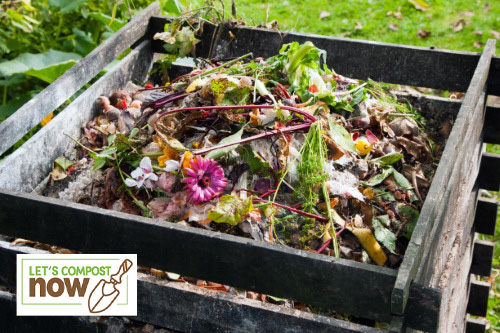
Sometimes hedgehogs may find a home in your compost, it’s warm and full of worms! So when you decide to turn over your compost just check that it is a hedgehog-free first!
To find out how you can encourage wildlife into your garden, yard or window box download the My Wild Garden booklet

Keep in touch with us on Facebook, Twitter or Instagram. Search #LetsCompostNow
Royal Horticultural Society composting advice
Wildlife Trust – How to compost your waste
Your small actions can help create a healthy more sustainable place to live and being in the loop can even save you money. Reducing how much you buy, choosing more sustainable products or shopping pre-loved can lead to big savings.
The loop, AKA the circular economy, is about reducing waste. Recycling is a really important element of the loop. We need to get the full potential of materials before we destroy them and make something new from scratch. Repairing things and using things to the maximum is going to save you money.
This blog busts common myths around recycling and reuse.
My actions won’t make a difference – False
The average Greater Manchester resident throws away half a tonne of waste every year. We each also produce around 13 tonnes of C02 and greenhouse gasses each year, double the world average.
Only 48% of our waste is recycled, meaning we’re throwing away millions of tonnes of recyclable things every year. This wastes resources and means having to spend huge amounts of energy re-mining for materials we could have reused, further eating into dwindling natural resources.
Running out of resources isn’t something I need to worry about in my lifetime – False
If we continue as we are, fossil fuels could run out by 2060. Lithium, the element used in batteries could be totally used up in 17 years. Electric vehicles are a fantastic way to reduce the amount of fossil fuels used, but lithium is a vital component in electric vehicle batteries.
If the UK recycled all of the single use vapes we currently throw away, in 1 year we’d have enough lithium for 1200 electric vehicle batteries.
Reusable products are more expensive – False
Read our blog on how sustainable swaps can save your family £1670 a year here.
Sustainable and reusable products are built to last. They are slightly more expensive due to the quality, but when you factor only having to pay once instead of every week, the savings quickly add up. If you switched to reusable kitchen roll, you could save £245 in a year. As well as benefiting your pocket, you’re helping to reduce the amount of rubbish we produce and reduce the amount of materials taken from the earth.
A recycling symbol on packaging automatically means I can recycle it – False
There are loads of different versions of recycling symbols on packaging and it can be confusing.
This is the most common symbol you’ll see and it’s designed to encourage people to recycle. However, each local authority recycles differently, so it’s important to check www.recycleforgreatermanchester.com/what-do-i-do-with/ if you can put the packaging into your household recycling bins, if it needs to be taken to the recycling centre, or if it needs to go in general waste.
The Green Dot shows the company making the packaging has paid money towards a recycling scheme. It doesn’t mean that the packaging can be recycled or is made from recycled materials.
This symbol is found on electrical items and shows that they can’t be put into your general waste bin. Electrical items need to be disposed of at your local recycling centre so the precious metals inside can be reused. You can also check if you can return electricals to the store you bought it from for recycling. Electrical waste causes fires and by not recycling, we lose precious resources that could have been turned into new devices.
We urgently need to change from our current system of buying things and throwing them away. Reducing the amount of stuff we use and keeping precious resources in use as long as possible, before recycling them fully, is vital to combat climate change and resource scarcity.
Be in the loop by repairing instead of throwing away. Electronic waste is a huge problem in the UK, with so many appliances being thrown away before they’re truly broken.
Have you gone to heat up your tea and found your microwave sparking? Instead of forking out £80 on a new one, this £5 repair could be the solution to get your microwave back spinning safely.
If you’re certain no foil has found its way into the machine, a damaged waveguide cover might be the cause of the sparks. This small rectangle of silver card allows the microwaves rays to heat the food. If it gets dirty or damaged it can cause sparking and result in problems heating food. There’s no need for a full replacement appliance. Save yourself money and save the planets resources.
This guide will take you through the steps to replace your microwave waveguide cover. If you’re in any doubt about the safety of your appliance, always get a qualified technician to investigate for you.
*Always make sure electronics are unplugged before investigating or working on them*
Step 1:
Have a look at the waveguide cover.
It’s a silvery rectangle usually on the right-hand side, inside the machine. Is it looking dirty? Is it torn? Are there scorch marks from the sparks? If so, it needs replacing.
Step 2:
Order a replacement waveguide cover.
Go online and search ‘microwave waveguide cover’. You’ll find some designed to fit specific makes and models. We think it’s easiest to buy a sheet and cut the new cover to size.
Step 3:
Take out your old waveguide cover and trace the shape onto the new cover card.
Step 4:
Cut round your traced outline.
Step 5:
Fit the new waveguide cover, plug the microwave back in.
That’s it, all fixed! Now find yourself a treat to test your handy work and breath a sign or relief that you’ve not needlessly thrown away a microwave for the sake of a few inches of silver card.
Repair your clothes with these five hacks.
Save yourself money and keep your favourite items in your wardrobe rotation with these super easy hacks.
Making textiles is massively resource intensive: it takes 2,700 litres of water to make a t-shirt, which is as much drinking water as 1 person needs for 2.5 years! If we all doubled the number of times we wore an item of clothing, we would reduce greenhouse gas emissions by 44%. These hacks will help you repair your clothes, so you can wear them for as long as possible.
If you don’t have the time to make repairs, you can support a sustainable business and get them to extend the life of your clothes. Here are our favourites:
We’re launching Greater Manchester first-ever Repair Week, taking place from 20-26 March, to celebrate the benefits of repairing items and shout out to some of our local repair heroes. Find out more about Greater Manchester Repair Week and get involved!
Why repair?
As we’re now living through a climate emergency, we all have a part to play to protect the planet from further harm – repairing and reusing is a good way for us to contribute.
All of our items, whether it’s clothing, furniture, electrical items or home appliances, contain carbon footprints when they’re being manufactured, distributed, used and disposed of. Manufacturing and extracting resources for new products is causing an increasingly huge impact on the environment, making up around 50% of the total greenhouse gas emissions produced worldwide. By repairing items instead of buying new, you’re helping to cut down all those associated emissions to save the planet.
Keeping In the Loop
Furthermore, repairing your items helps reduce waste by keeping them in the loop for as long as possible. As we’re working towards a more circular economy, your actions can help create a more sustainable neighbourhood and Greater Manchester to live in.
As well as saving the planet, repairing your goods saves your pocket too! With many of us trying to cut down our spending due to the rising cost of living, repairing has become a rising trend. Next time when your clothes, furniture or electricals need fixing, why not jump onto YouTube to look for a repairing tutorial before finding a replacement immediately. You can also check out some of our top repairing hacks on our social channels this week.
Happy fixing!